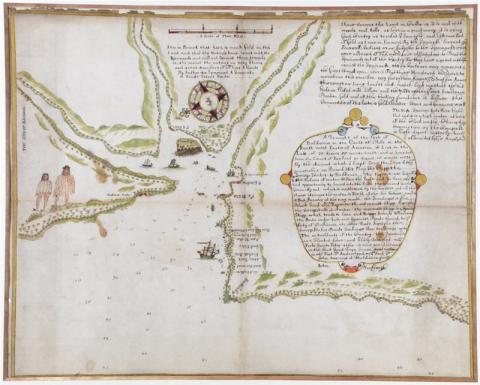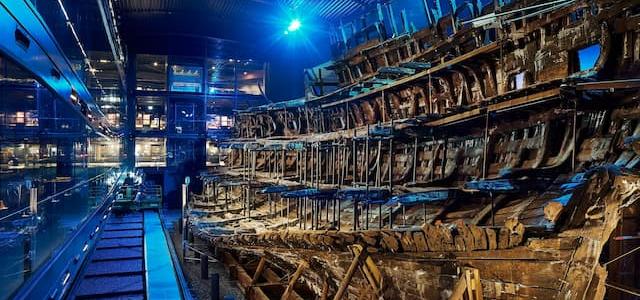
British Library successfully stops English naval explorer’s journal from sailing abroad
The British Library is delighted to announce a £200,000 grant from the National Heritage Memorial Fund (NHMF) to help purchase the recently discovered Sir John Narbrough's Naval Journal.

The Culture Minister's temporary export bar ends on 7 November so the British Library is in a race against time to raise the rest of the funds required to save this British naval pioneer's journal for our nation's seafaring heritage.
The purchase price of Sir John Narbrough's Naval Journal is £310,000. The British Library is urgently seeking donations to acquire this rare and unique heritage item in order to make it available to both academics and the general public.
This rare manuscript provides the fullest known account of Narbrough’s voyage to South America from 1669-71 and contains unrecorded maps and unresearched information on British exploration and social and political history. It also includes an account of Narbrough’s earlier voyage to the Caribbean in the heyday of the buccaneers.
Narbrough was the first British sailor to navigate the Strait of Magellan from West to East. This appeared to make trade in the Pacific (and all the potential wealth associated with it) possible and set the direction of British foreign policy for the next half century, culminating in the financial disaster known as the South Sea Bubble of 1720-21.
Sir John Narbrough’s naval journal has direct importance for the history of English mapmaking. A skilled mapmaker himself, he was assisted by Greenville Collins - who later became the first Englishman to create detailed charts of all the coasts of Britain. Their description of the Strait of Magellan provided the basis for British charts of the Strait until the time of Captain Cook. The manuscript charts in the Journal are amongst the earliest English large-scale maps of Spanish America, with those of Valdivia and Port St Julian being especially important for their ethnographical and wild life illustrations. The drawings illustrating the charts include naïve and charming depictions of the peoples and animals of South America.
Peter Barber, Map Librarian at the British Library, remarks on its importance: "Sir John Narbrough’s Naval Journal is a real hidden treasure as it is arguably the first English modern nautical journal ever written. Narbrough is a crucial figure in the history of English exploration - his voyages took place half way between Francis Drake and Captain Cook and, although he’s less well known than these two historical heavyweights, his journal demonstrates how his adventures were equally as significant."
Carole Souter, Chief Executive of the National Heritage Memorial Fund, said: "These fascinating papers shine a light on a key moment in Britain's naval history.The National Heritage Memorial Fund's grant brings them one step closer to being saved so that we can all find out more about Sir John Narbrough's explorations and their contribution to Britain's sea-faring adventures.
"Like Francis Drake, Narbrough found himself in conflict with the Spaniards but, like Cook, the journal reveals for the first time how genuinely and deeply concerned Narbrough was for the welfare of his crew and how determined he was that his voyages should serve scientific as well as commercial purposes. His enthusiasm for discovering more about the peoples and animals of the countries that he visited foreshadows that of the wildlife television programme commentators that we are familiar with today."
Notes to editors
Donations can be made online at www.bl.uk or alternatively, can be made payable to the British Library and sent to Development Office, British Library, 96 Euston Road, London, NW1 2DB.
The British Library is the national library of the United Kingdom and one of the world's greatest research libraries. It provides world class information services to the academic, business, research and scientific communities and offers unparalleled access to the world's largest and most comprehensive research collection. The Library's collection has developed over 250 years and exceeds 150 million separate items representing every age of written civilisation. It includes: books, journals, manuscripts, maps, stamps, music, patents, newspapers and sound recordings in all written and spoken languages. www.bl.uk.
Further information
For press enquiries, please contact Julie Yau
Phone: 020 7412 7237 Email: julie.yau@bl.uk.

